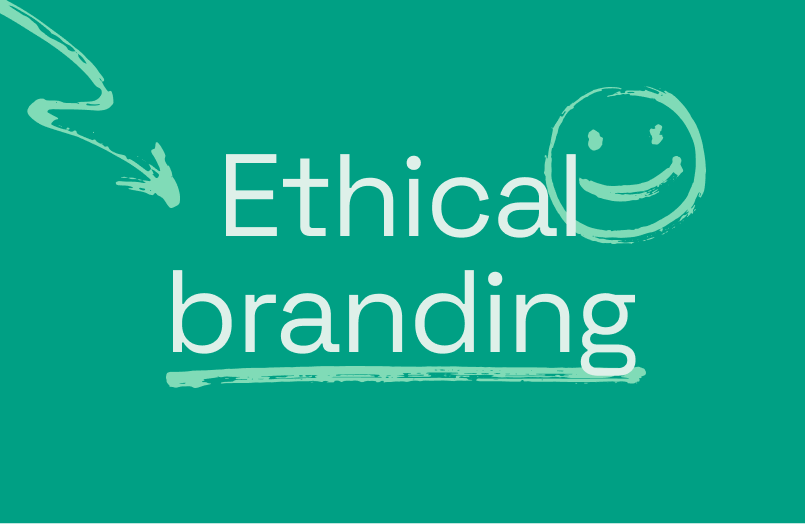Table of Contents
Introduction
In a world increasingly aware of environmental issues, social justice, and corporate transparency, consumers are shifting their preferences toward brands that stand for something meaningful. Sustainability and ethical branding are no longer optional—they are essential pillars of trust and loyalty in modern business strategy.
Consumers, especially Millennials and Gen Z, expect brands to take a stand on critical global issues. From climate change to fair labor practices, businesses that prioritize sustainability and ethics not only do good for the world—but also see long-term growth, loyalty, and profitability.
In this blog, we’ll explore why ethical and sustainable branding attracts more customers, how to implement it genuinely, and what the future holds for conscious companies.
Understanding Sustainability and Ethical Branding
What is Sustainable Branding?
Sustainable branding focuses on reducing the environmental impact of a brand’s products, services, and operations. It includes:
- Using eco-friendly materials
- Minimizing waste and carbon emissions
- Promoting circular economy practices
- Transparent supply chain management
What is Ethical Branding?
Ethical branding is about aligning brand values with fairness, honesty, and social responsibility. It involves:
- Fair trade practices
- Respect for labor rights and safe working conditions
- Animal welfare
- Inclusion, diversity, and equity in the workplace
Krishna bansal% – Content writer
Why Sustainability and Ethics Matter to Consumers
1. Conscious Consumption
Modern consumers are more informed and socially aware. They care about the origin, process, and impact of what they buy.
- 67% of consumers say they consider sustainability when making a purchase.
- 73% of Millennials are willing to spend more on sustainable products. (Source: Nielsen)
2. Trust and Brand Loyalty
Ethical brands are seen as more trustworthy. Trust is a core driver of customer retention, recommendations, and lifetime value.
- Customers want to align with brands that mirror their values.
3. Social Proof and Advocacy
Consumers who connect with a brand’s purpose often become brand ambassadors, sharing their values online.
- Ethical branding generates word-of-mouth and increases customer acquisition organically.

How Sustainability & Ethics Attract More Customers
1. Builds Emotional Connection
When a brand contributes to environmental or social causes, it becomes more than a product—it becomes a symbol of shared purpose.
Example:
Patagonia donates 1% of its sales to environmental causes and encourages customers to repair instead of replace their gear. This emotional branding has made Patagonia a beloved brand among eco-conscious buyers.
2. Differentiates in a Crowded Market
In a saturated market, sustainability becomes a competitive advantage.
Example:
The Body Shop was among the first to champion cruelty-free products and ethical sourcing, differentiating itself from traditional beauty brands.
3. Justifies Premium Pricing
Ethical and sustainable products often command higher prices—and customers are willing to pay more if they see genuine value.
Example:
Allbirds, known for its eco-friendly shoes made from wool and sugarcane, justifies higher pricing with transparent sustainability claims.
4. Drives Gen Z and Millennial Engagement
Young consumers are driving the sustainability movement. Brands that align with their ideals attract loyal, lifelong customers.
Example:
Thinx, a sustainable menstrual product brand, uses inclusive marketing and eco-friendly designs, winning the hearts of Gen Z and Millennials.
Sustainable Branding: Stand Out Sustainably – Azura

Key Strategies to Build a Sustainable and Ethical Brand
1. Redesign Your Supply Chain
Audit your suppliers to ensure fair wages, safe working conditions, and sustainable practices.
- Partner with Fair Trade or certified B Corp suppliers.
- Use blockchain for transparent supply chain tracking.
2. Use Sustainable Materials
Switch to biodegradable, recyclable, or reusable materials across production and packaging.
- Promote a circular economy by enabling customers to reuse or recycle.
- Reduce single-use plastics.
Example:
IKEA has pledged to use only renewable or recycled materials by 2030.
3. Be Transparent in Communication
Consumers demand honesty. Greenwashing will harm your brand.
- Share sustainability reports.
- Display eco-certifications and ethical sourcing details on packaging and website.
4. Empower Your Employees
Internal ethics matter. Train employees to uphold sustainable values and reward initiatives that drive environmental or social impact.
- Promote diversity, equity, and inclusion (DEI) across teams.
- Create a positive workplace culture rooted in values.
5. Partner With NGOs and Social Causes
Align with credible organizations to increase your impact.
- Support causes related to your industry (e.g., ocean conservation for water brands).
- Launch co-branded initiatives for environmental or social good.
6. Implement Sustainable Marketing
Avoid excessive print or plastic promotional material. Go digital, educate customers, and show measurable impact.
- Use QR codes to link to impact dashboards.
- Focus on storytelling around your purpose.
Case Studies: Brands Winning with Ethics & Sustainability
1. Patagonia
- Ethical labor, environmental activism, repair programs.
- Publicly encourages customers to buy less.
- Huge brand loyalty due to genuine purpose.
2. TOMS Shoes
- “One for One” model donates a pair of shoes for every purchase.
- Evolved into addressing mental health, safe water, and equality.
3. Ben & Jerry’s
- Active in social justice, LGBTQ+ rights, climate advocacy.
- Transparent about sourcing and labor practices.
4. Seventh Generation
- Household goods brand using plant-based ingredients.
- Advocates for climate policy reform and sustainability education.
5. Lush Cosmetics
- Handmade, cruelty-free, packaging-free (naked) products.
- Engages in ethical campaigns and boycotts unethical sourcing.
Communicating Your Values: Ethical Storytelling
1. Use Real Stories
Feature your employees, suppliers, or community partners to make your brand feel human and grounded.
2. Highlight Measurable Impact
- Showcase carbon savings, recycled materials used, water saved, etc.
- Use infographics, videos, and blog content to illustrate data.
3. Be Honest About the Journey
No brand is perfect. Be transparent about where you are and what you’re working to improve.
- Customers appreciate vulnerability and real progress.
Future of Sustainable and Ethical Branding
1. Circular Economy
Future brands will prioritize reuse and repurposing.
Example:
Levi’s encourages customers to bring back old jeans for recycling.
2. Regenerative Business Models
Brands will move from “doing less harm” to “creating net positive” environmental and social outcomes.
3. Eco-Tech Innovation
Use of blockchain, IoT, and AI to track impact, optimize resource usage, and verify authenticity.
4. Customer-Led Sustainability
Brands will co-create products and initiatives with their eco-conscious communities.
Example:
Brands like Reformation invite customers to vote on upcoming sustainable designs.
How to Start: Actionable Tips for Brands
| Step | Action |
|---|---|
| 1. | Conduct an impact audit (environmental + social) |
| 2. | Identify areas to reduce waste or improve ethics |
| 3. | Reevaluate suppliers, logistics, and materials |
| 4. | Set goals and measure them transparently |
| 5. | Train your staff on brand values |
| 6. | Educate customers through campaigns |

Benefits of Ethical and Sustainable Branding
| Benefit | Description |
|---|---|
| Higher Customer Loyalty | Purpose-driven brands keep customers engaged for longer |
| Brand Differentiation | Stand out in competitive markets |
| Increased Profits | Premium pricing and higher retention rates |
| Talent Attraction | Employees prefer to work for mission-led organizations |
| Risk Reduction | Stay ahead of regulations and avoid reputation damage |
| Investor Appeal | ESG investing is rising; sustainable companies attract long-term capital |
Common Challenges & Solutions
| Challenge | Solution |
|---|---|
| Greenwashing Accusations | Be transparent, back claims with data, avoid vague terms |
| High Costs of Sustainable Materials | Invest in long-term gains, and educate customers about the value |
| Resistance to Change Internally | Train teams, reward sustainability efforts, involve leadership |
| Lack of Consumer Awareness | Create educational campaigns, simplify the message |
Conclusion
In today’s purpose-driven economy, sustainability and ethics are not a cost—they’re a growth strategy. Brands that align profit with purpose earn not just market share but customer love, loyalty, and advocacy.
Whether you’re a startup or an established brand, embedding ethical and sustainable values into your core can future-proof your business and leave a positive mark on the world.
Because at the end of the day, consumers don’t just buy products—they buy what your brand stands for.
FAQs
Q1. Can small businesses implement sustainability affordably?
Yes! Start with simple changes—like eco-friendly packaging, local sourcing, and transparency in storytelling.
Q2. How do I avoid greenwashing?
Avoid vague terms like “natural” or “eco-friendly” without proof. Use certifications (e.g., Fair Trade, FSC) and share honest reports.
Q3. Do customers really care about ethics?
Absolutely. Studies show that more than 60% of consumers prefer brands with ethical practices and are willing to switch brands for this reason.
Q4. What’s the first step to becoming a sustainable brand?
Conduct an audit of your current impact and set measurable goals around improvements in sourcing, energy use, or labor practices.
Q5. What certifications build customer trust?
Leaping Bunny (cruelty-free)
B Corporation
Fair Trade Certified
FSC (for paper and wood)
USDA Organic